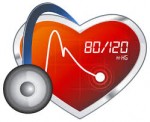The 60 Minutes segment "Sex Matters: Drugs Can Affect Sexes Differently" is set to re-air this Sunday at 6:00pm central time. The Women's Health Research Institute and it Leadership Council members worked with CBS on this show. The recent strides by the WHRI, the NIH, and other media outlets has shed a renewed light on the issue of sex inclusion in research. If you missed it last time, tune in this Sunday to learn about the way drugs affect men and women differently. Watch the preview now on the 60 Minutes website!
 Your spouse or partner says your snoring is driving him nuts. You wake up feeling unrested and irritable.
Your spouse or partner says your snoring is driving him nuts. You wake up feeling unrested and irritable.
These are common signs that you may have obstructive sleep apnea (OSA), a sleep disorder that—left untreated—can take its toll on the body and mind.
Untreated OSA has been linked to high blood pressure, heart attacks, strokes, car accidents, work-related accidents and depression. According to the American Sleep Association, OSA affects more than 12 million Americans. There is also a new study that found that women with apnea may have an increased risk for stroke.
The Food and Drug Administration ensures the safety and effectiveness of medical devices, including the device most often used by those affected by OSA – the Continuous Positive Airway Pressure machine, commonly known as CPAP – and a new device, the Inspire Upper Airway Stimulation (UAS) System.
To learn more about sleep apnea, click HERE.
 Obesity appears to increase the risk of breast cancer–related deaths by about one-third in premenopausal but, surprisingly, not postmenopausal women with estrogen receptor–positive disease, investigators report.
Obesity appears to increase the risk of breast cancer–related deaths by about one-third in premenopausal but, surprisingly, not postmenopausal women with estrogen receptor–positive disease, investigators report.
An analysis of pooled data on 80,000 patients enrolled in 70 clinical trials showed that among 60,000 patients with estrogen receptor (ER)-positive disease, body mass index (BMI) was associated with risk for breast cancer mortality in both pre- and perimenopausal women.
But after adjustment for patient factors and tumor characteristics, the association remained significant only for premenopausal women with ER-positive tumors, who had a 34% higher risk of dying from breast cancer, said Dr. Hongchao Pan, on behalf of colleagues in the Early Breast Cancer Trialists’ Collaborative Group.
“To our surprise, we found little independent adverse effects of obesity in the 40,000 postmenopausal women with ER-positive disease,” Dr. Pan said at a media briefing highlighting research to be presented at the annual meeting of the American Society of Clinical Oncology (ASCO) in Chicago, from May 30 through June 3.
There was also no apparent effect among women of any age with ER-negative tumors.
The findings suggest that the mechanisms by which obesity contributes to breast cancer prognosis are still unclear, Dr. Pan said.
By: NEIL OSTERWEIL, Ob.Gyn. News Digital Network
The study was funded by Cancer Research UK, the Medical Research Council, and the British Heart Foundation. Dr. Pan, Dr. Yu, and Dr. Hudis reported having no relevant financial disclosures.
Copyright © 2014 International Medical News Group, LLC. All rights reserved.
 Stephen Colbert's show featured clips from the Women's Health Research Institute's recent 60 Minutes segment on sex inclusion in research. More than ever, it is essential to include male and female animals at the research level to ensure that sex is examined as a variable that can lead to different treatments and medications for different genders. The Institute has be advocating for full inclusion in human, animal and cell research!
Stephen Colbert's show featured clips from the Women's Health Research Institute's recent 60 Minutes segment on sex inclusion in research. More than ever, it is essential to include male and female animals at the research level to ensure that sex is examined as a variable that can lead to different treatments and medications for different genders. The Institute has be advocating for full inclusion in human, animal and cell research!
 Collaborative depression care adapted to women's health settings appears to improve depressive and functional outcomes and quality of depression care, according to a report online in the journal Obstetrics and Gynecology. Researchers at the University of Washington randomized 102 women to 12 months of collaborative depression management and 103 women to usual obstetric care at two obstetric care sites. All of the women met criteria for major depression, dysthymia, or both. Participants were age 39 on average, and 56 percent had a diagnosis of posttraumatic stress disorder.
Collaborative depression care adapted to women's health settings appears to improve depressive and functional outcomes and quality of depression care, according to a report online in the journal Obstetrics and Gynecology. Researchers at the University of Washington randomized 102 women to 12 months of collaborative depression management and 103 women to usual obstetric care at two obstetric care sites. All of the women met criteria for major depression, dysthymia, or both. Participants were age 39 on average, and 56 percent had a diagnosis of posttraumatic stress disorder.
The collaborative care model is team-based care that involves psychiatrists, other clinicians, and depression care managers who meet weekly to review patient progress and provide treatment recommendations. The care manager follows up with patients.
 On Monday, May 12, 2014, Dr. Katherine Wisner, Director of the Asher Center for Research and Treatment of Depressive Disorders at Northwestern's Feinberg School of Medicine, was a featured television guest on WCIU, The U. Dr. Wisner discussed sex differences in mental health (particularly in depression and anxiety). She stated that women are twice as likely to have an episode of depression or anxiety than men. This increased risk for women begins at puberty and can be particularly elevated during menstrual cycles and after childbirth. In fact, 5% of women have very severe mood problems right before their period; this is called premenstrual dysphoric disorder (PMDD), and can cause women to become highly irritable with fluctuating moods. Furthermore, Dr. Wisner stated that 1 out of 7 postpartum women undergo depression, as the hormone fluctuation leaves women very vulnerable to depression.
On Monday, May 12, 2014, Dr. Katherine Wisner, Director of the Asher Center for Research and Treatment of Depressive Disorders at Northwestern's Feinberg School of Medicine, was a featured television guest on WCIU, The U. Dr. Wisner discussed sex differences in mental health (particularly in depression and anxiety). She stated that women are twice as likely to have an episode of depression or anxiety than men. This increased risk for women begins at puberty and can be particularly elevated during menstrual cycles and after childbirth. In fact, 5% of women have very severe mood problems right before their period; this is called premenstrual dysphoric disorder (PMDD), and can cause women to become highly irritable with fluctuating moods. Furthermore, Dr. Wisner stated that 1 out of 7 postpartum women undergo depression, as the hormone fluctuation leaves women very vulnerable to depression.
Dr. Wisner emphasized that it is important for women to seek treatment if they feel that they may be suffering from depression or anxiety, as there are treatments available that do work. No women should have to feel depressed or anxious, and it is therefore important to understand how your body and your mind work together for your overall health. Click here to watch the full WCIU feature with Dr. Katherine Wisner.
 A new AHRQ-funded study suggests that emergency department physicians should be especially vigilant for the possibility of stroke in younger, female and nonwhite patients who complain of headache or dizziness. Based on AHRQ Healthcare Cost and Utilization Project data from 2008 and 2009, study authors estimated that as many as 165,000 strokes are misdiagnosed annually in the emergency department. Potential misdiagnoses were more often associated with younger, female and minority patients who had headache and dizziness. Titled “Missed Diagnosis of Stroke in the Emergency Department: A Cross-Sectional Analysis of a Large Population-Based Sample,” the article was published online April 3 in Diagnosis.
A new AHRQ-funded study suggests that emergency department physicians should be especially vigilant for the possibility of stroke in younger, female and nonwhite patients who complain of headache or dizziness. Based on AHRQ Healthcare Cost and Utilization Project data from 2008 and 2009, study authors estimated that as many as 165,000 strokes are misdiagnosed annually in the emergency department. Potential misdiagnoses were more often associated with younger, female and minority patients who had headache and dizziness. Titled “Missed Diagnosis of Stroke in the Emergency Department: A Cross-Sectional Analysis of a Large Population-Based Sample,” the article was published online April 3 in Diagnosis.
 The average age of menopause in the United States is around 51 years old, but the onset can widely vary. Premature menopause refers to menopause of onset at or before 40 years of age. This can occur because of a variety of causes, including surgery (i.e. bilateral oophorectomy, removal of ovaries), chemotherapy or pelvic radiation treatments for cancer, chromosomal or genetic defects, and spontaneous premature ovarian failure.
The average age of menopause in the United States is around 51 years old, but the onset can widely vary. Premature menopause refers to menopause of onset at or before 40 years of age. This can occur because of a variety of causes, including surgery (i.e. bilateral oophorectomy, removal of ovaries), chemotherapy or pelvic radiation treatments for cancer, chromosomal or genetic defects, and spontaneous premature ovarian failure.
A study based on a sample of 4868 women tested cognition at baseline, two, four, and seven years, and it also looked at the effects of the type of menopause, whether natural or surgical, could play a role.
Natural menopause was reported by 79% of the 4868 participants, 10% underwent menopause from surgical causes, and 11% reported menopause from other treatment causes including radiation or chemotherapy. Approximately 7.6% of the women in the study had a premature menopause, and the study further delineated 12.8% of the women had an early menopause (between 41 and 45 years of age).
Results showed that women who underwent premature menopause had a more than 40% increased risk of poor performance on verbal fluency and visual memory tasks, compared to those who experienced menopause at or after the age of 50. Women who underwent premature menopause also were associated with a 35% increased risk of decline in psychomotor speed. There was no significant association with the risk of dementia.
Both premature menopause secondary to surgery and premature ovarian failure, were associated with long-term negative effects on cognitive function, which cannot entirely be answered by hormone therapy. Researchers agree more studying needs to be done to better understand the potential benefits using hormone therapy.
Healthcare professionals should be aware of the potentially significant impact premature menopause can have on cognitive function in later life. Professionals should also consider these effects when aiding younger women in the decision-making process of undergoing oophorectomy. To learn more about how menopause can affect you long-term, visit Northwestern's menopause website here.
Source: J Ryan, J Scali, I Carrière, H Amieva, O Rouaud, C Berr, K Ritchie, M-L Ancelin.Impact of a premature menopause on cognitive function in later life. BJOG: An International Journal of Obstetrics & Gynaecology, 2014; DOI: 10.1111/1471-0528.12828
 It is only fitting that the theme for this year’s National Nurses Week is “Nurses: Leading the Way.” After all, nurses lead the way in showing an elderly patient how to manage his or her diabetes. They lead the way in making sure their patients – children and adults – get the vaccinations they need. They lead the way in helping our young moms learn how to care for their infants. And they lead the way in conducting research to promote high-quality life for those with chronic illnesses, and to help all of us stay healthy across the lifespan. According to the U.S. Dept of Health and Human Services, nurses have played a big part in clarifying insurance issues related to the Affordable Care Act.
It is only fitting that the theme for this year’s National Nurses Week is “Nurses: Leading the Way.” After all, nurses lead the way in showing an elderly patient how to manage his or her diabetes. They lead the way in making sure their patients – children and adults – get the vaccinations they need. They lead the way in helping our young moms learn how to care for their infants. And they lead the way in conducting research to promote high-quality life for those with chronic illnesses, and to help all of us stay healthy across the lifespan. According to the U.S. Dept of Health and Human Services, nurses have played a big part in clarifying insurance issues related to the Affordable Care Act.
As a result of funding through the Affordable Care Act and other investments, the Administration has greatly expanded the National Health Service Corps and the NURSE Corps, two initiatives that provide educational loan repayment and scholarships in return for practice in the nation’s medically underserved communities. More than 3,680 National Health Service Corps and NURSE Corps nurses – including 1,889 nurse practitioners and 1,475 registered nurses – are providing care across the country to those who need it most.
National Nurses Week culminates on May 12, the anniversary of the birthday of perhaps the most famous nurse, Florence Nightingale, the original nurse leader. Please join us this week and all the weeks that follow in recognizing nurses across the country for following in Florence’s footsteps and thanking them for the critical work they do in bringing better care and better health to all Americans.
For more information on the Department’s nursing loan repayments, scholarships, and research grants, and to take part in Nurses Week activities including the #IAMANURSE social media campaign, please visit hrsa.gov/nursesweek.
 May Is National High Blood Pressure Education Month, and nearly one in three adults in the United States has high blood pressure, also called hypertension. High blood pressure is dangerous because it increases the risk of stroke, heart attack, heart failure, kidney failure, death.
May Is National High Blood Pressure Education Month, and nearly one in three adults in the United States has high blood pressure, also called hypertension. High blood pressure is dangerous because it increases the risk of stroke, heart attack, heart failure, kidney failure, death.
High blood pressure is called the "silent killer" because it has no symptoms until it causes major damage. A number of FDA-approved drugs, along with lifestyle changes, can help treat this condition.
Read the Consumer Update to get tips for controlling blood pressure and to learn more about approved medications.
